April 3, 2025 5:31 am
Dragonfly and Damselfly -both flies are welcome around me
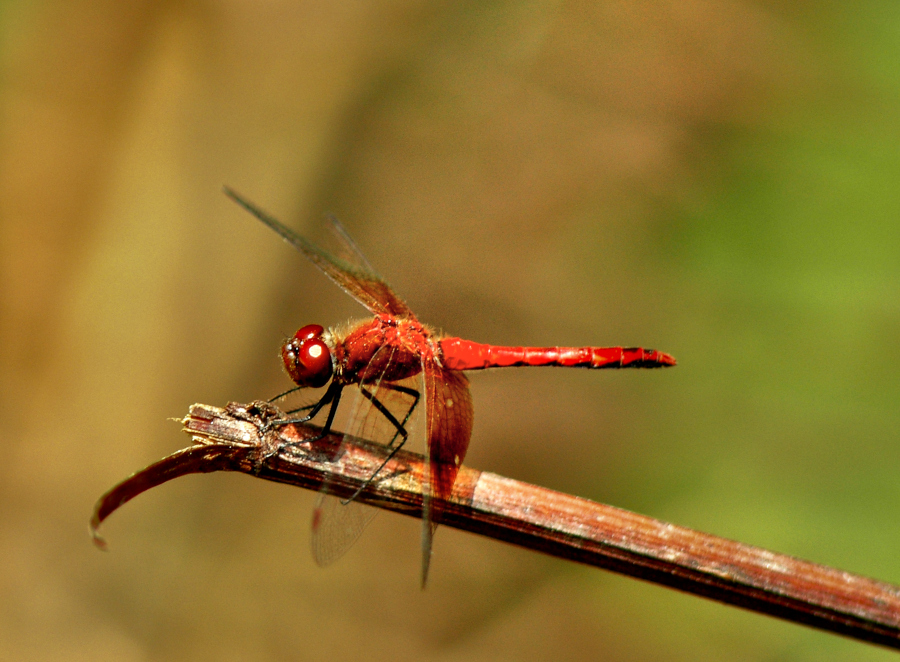
Meadowhawk dragonfly
Brickworks, Toronto
Dragonfly and Damselfly
Two [similar] beautiful sub-species of Odonata.
I know that beauty is in the eye of the beholder, but these flies are just beautiful!
Their wings are delicate and intricate fabrications of gossamer and vein structure, powered by individual, dense muscle packs allowing for complete independent control of each wing.
This independence enables incredible maneuverability during flight.
Forward, backward, hover, side to side and backwards…often in the blink of an eye.
[I have not witnessed it, but probably upside-down too!]
Dragonflies
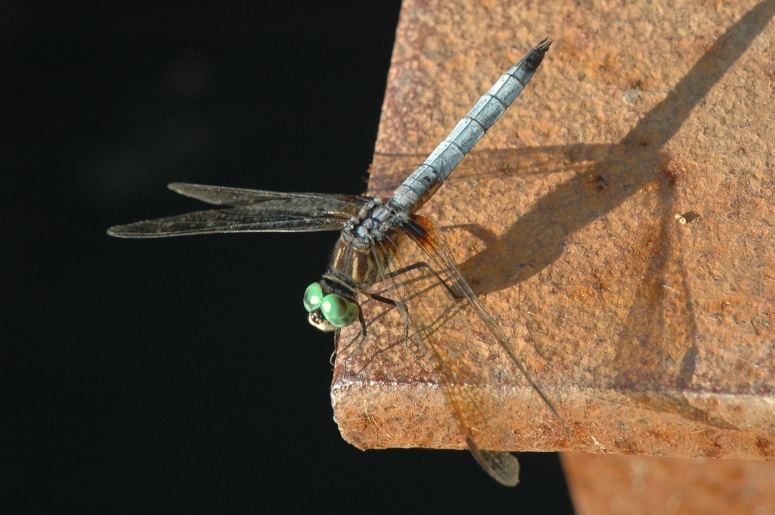
Pondhawk Dragonfly
Brickworks, Toronto
Size, color and shape
Their body size are generally wider and shorter than damselflies, giving them a stockier and sturdier appearance.
At rest [perched] their four wings can be seen outstretched.
In flight, the flight path tends to be direct.
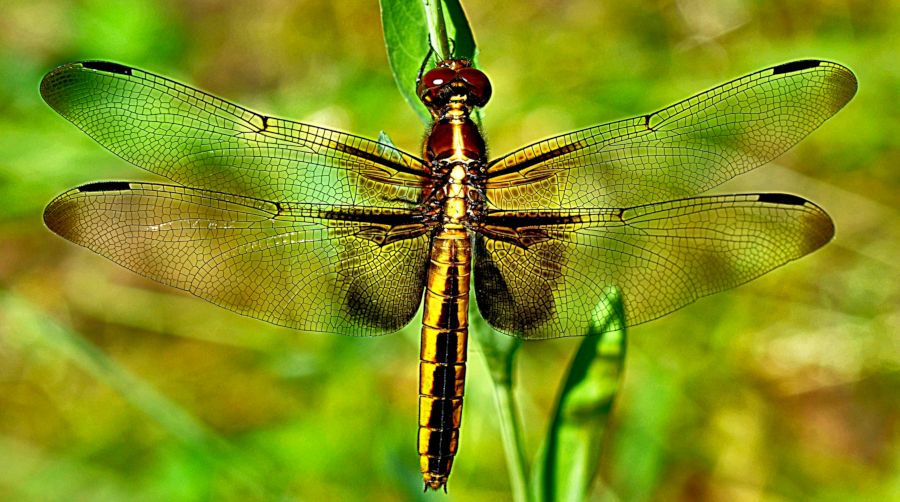
The eyes of the dragonflies are larger than those of damselflies and closer together, often making the identifying process easier.
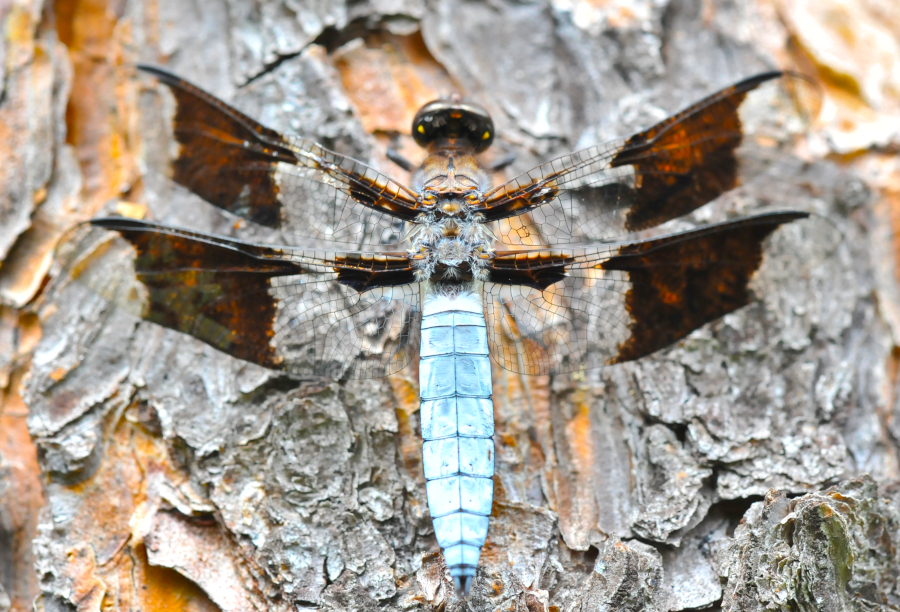
Whitetail dragonfly male
Brickworks, Toronto
Prey and being the preyed upon.
Being carnivorous, both species have similar diets, that consists of flying insects and other species that they are able to overpower.
Their legs have many small, short spikes that prove useful to grapple prey, as most captures occur during aerial encounters.
During their aquatic larvae stage, fish eggs, hatchlings, even tadpoles and other aquatic life forms are prey targets.
With the abundance of mosquitoes, blackfly, gnats and other annoying flying insects, I do not foresee many dragon/damselflies starving to death, putting their health and age aside.
Needless to say, they have their own predators to be aware of, such as birds, fish and ground predators on the lookout for an opportunity to seize.
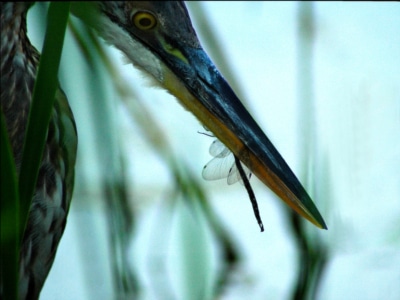
Caught!
Many body colors of dragonflies seem to look like a powder dusting, and the [color disparity] distinction between adult male and females can thwart the non-trained eye.
The following link can help the identifying process. I have utilized this source many times to identify species in Ontario. ON nature.
[https://ONNaturemagazine.com/odonata-guide.html]
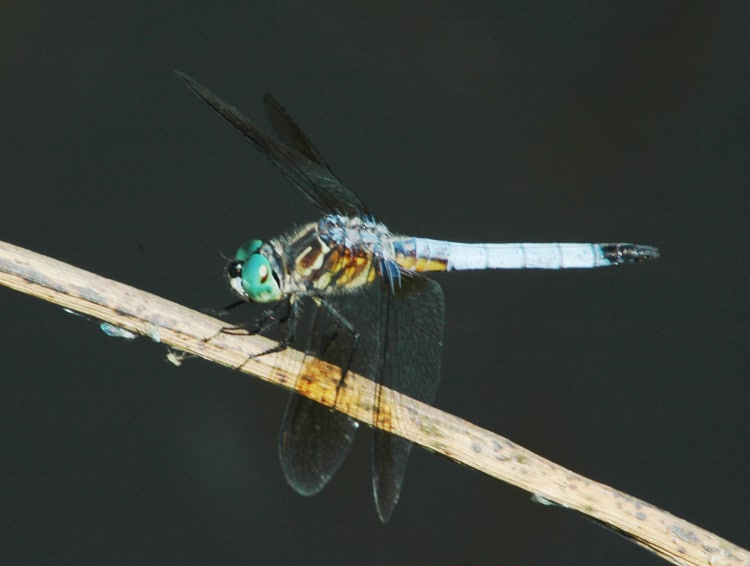
pondhawk dragonfly eyeing up prey
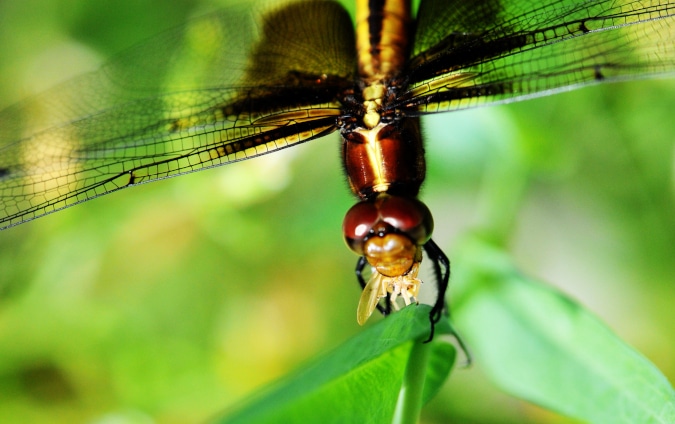
dragonfly with prey
The range and habitat of dragonflies are somewhat dependent on the local individual species, but dragonflies are found on all continents except the polar regions and where aquatics and food sources are scarce or nonexistent… ie desert [arid] conditions and mountainous regions.
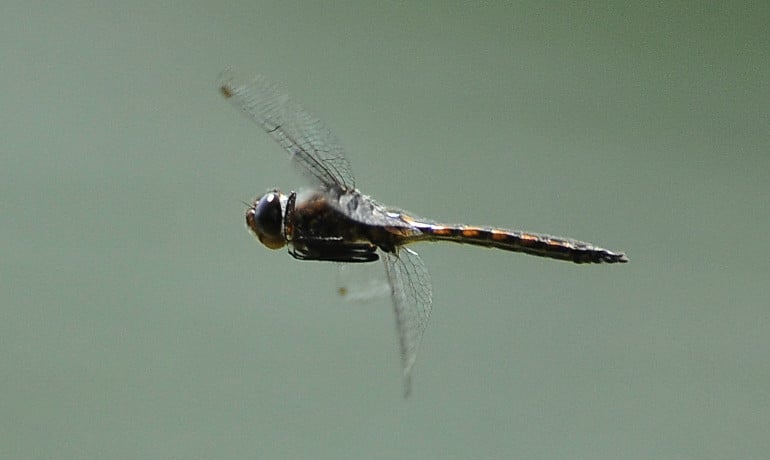
dragonfly in flight
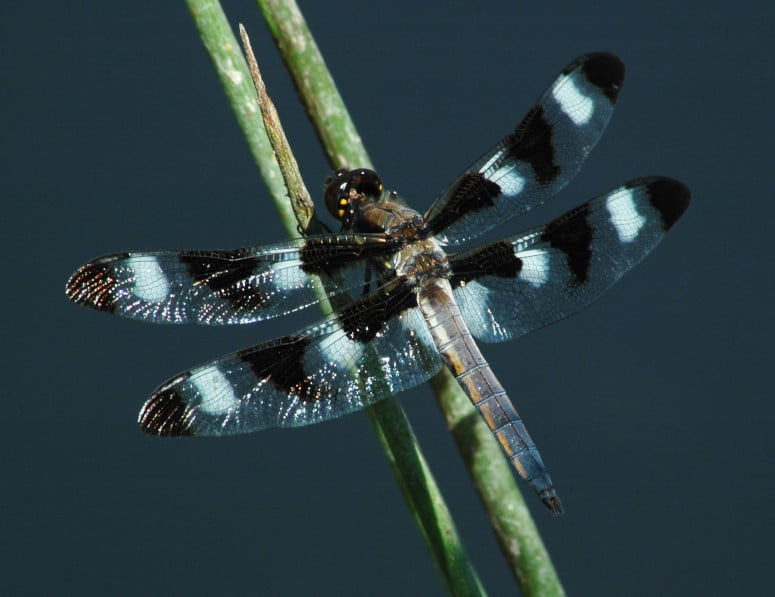
twelve spotted skimmer dragonfly
The lifespan of these insects rarely extends past the spring, summer and autumn season, with some species migrating to more favorable climates and over wintering until the spring, returning to mate and start the life cycle over again.
In some cultures around the world, dragonflies have a symbolic meaning.
This blog entry will not state those.
Damselflies
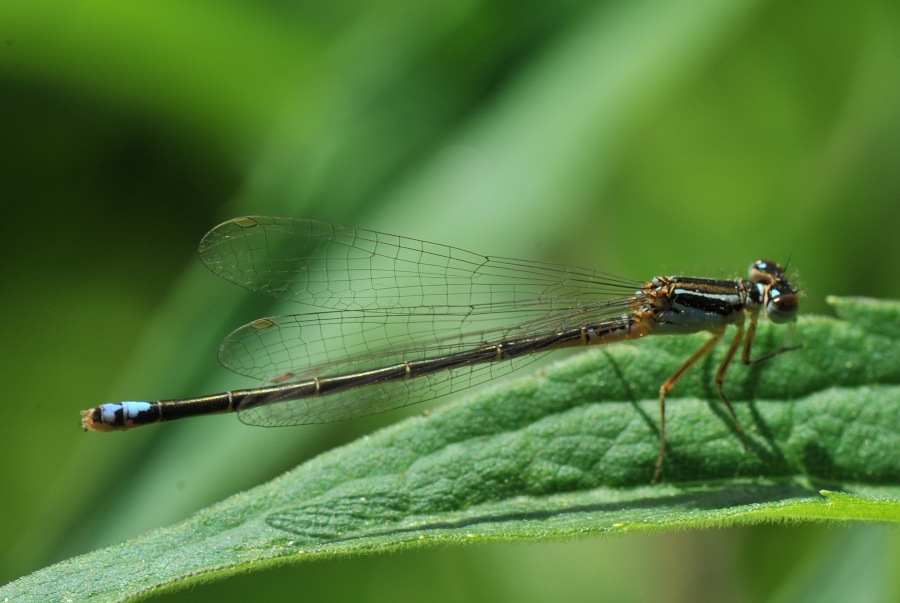
bluet damselfly
Damselflies have longer and slender bodies, giving them a gracile appearance.
The wings are folded over their bodies when at rest.
The flying pattern differs from dragonflies, being more of a ‘fluttering’ nature.
Their diet is the same as dragonflies.
The eyes of the damselflies are widely placed on their heads… as shown clearly in the image below.
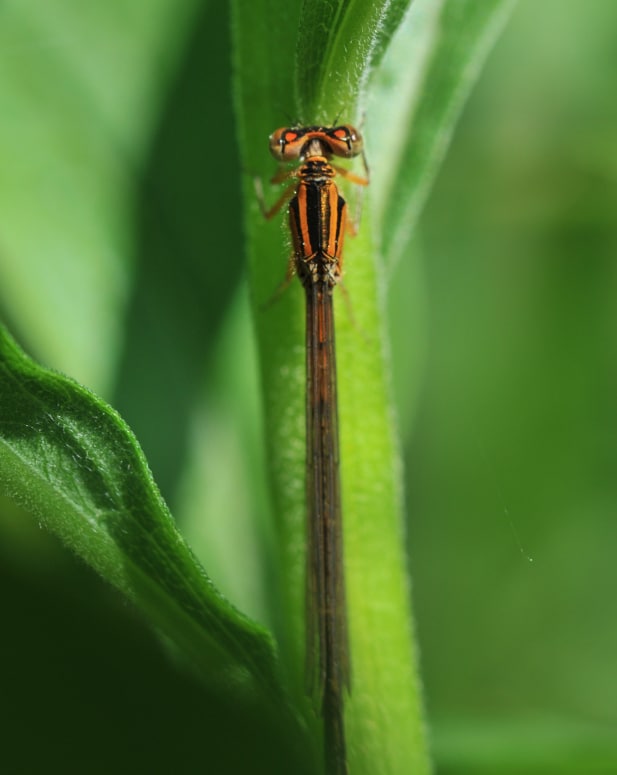
orange bluet
wings folded over body
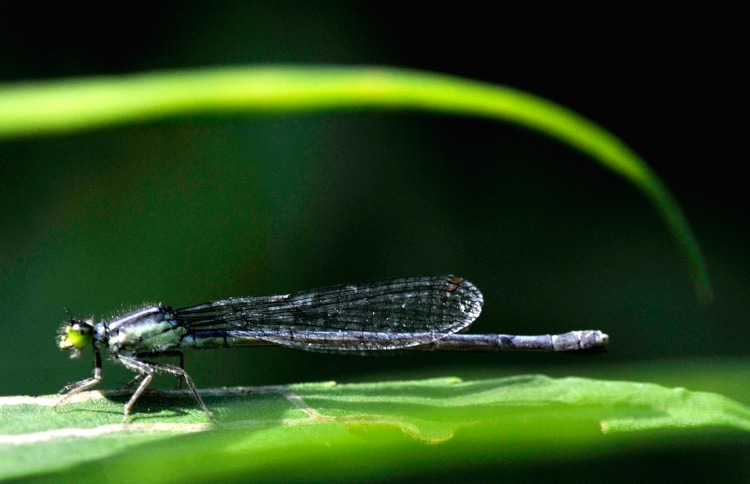
damselfly at rest
Both species, dragonfly and damselfly, are harmless to humans. They do not bite nor sting.
They are indeed beneficial to humans in keeping other bothersome insects at bay.
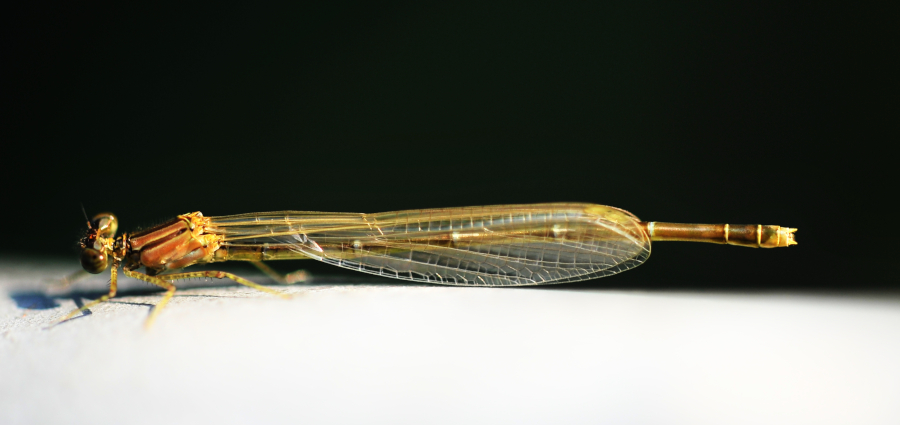
damselfly at rest
Broadwing Damselfly
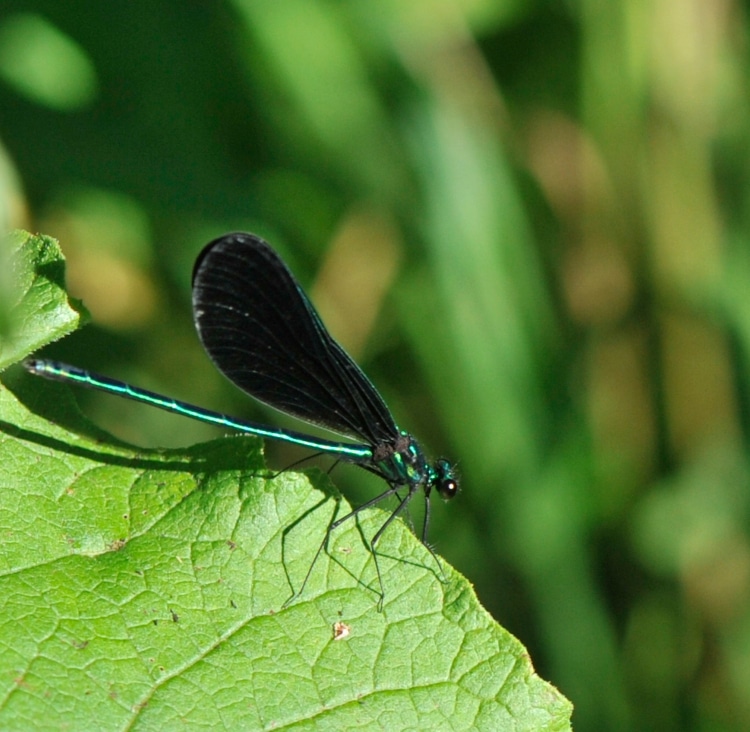
ebony jewelwing male
Nokiidaa Trail, Newmarket.
Ebony Jewelwing (Calopteryx maculata) is a stunning member of the broad-wing family of damselflies. These damselflies are easily distinguishable by their ebony-colored wings, with the females having a white dot at the tail end.
The locale for all of the above photographs were taken at Evergreen Brick Works Toronto, York Regional Forest [at various Tracts around the Newmarket location], Humber Bay Parks, Toronto and High Park , Toronto.
Subscribe and comment below.
comment .. below
Register / Login required to comment

